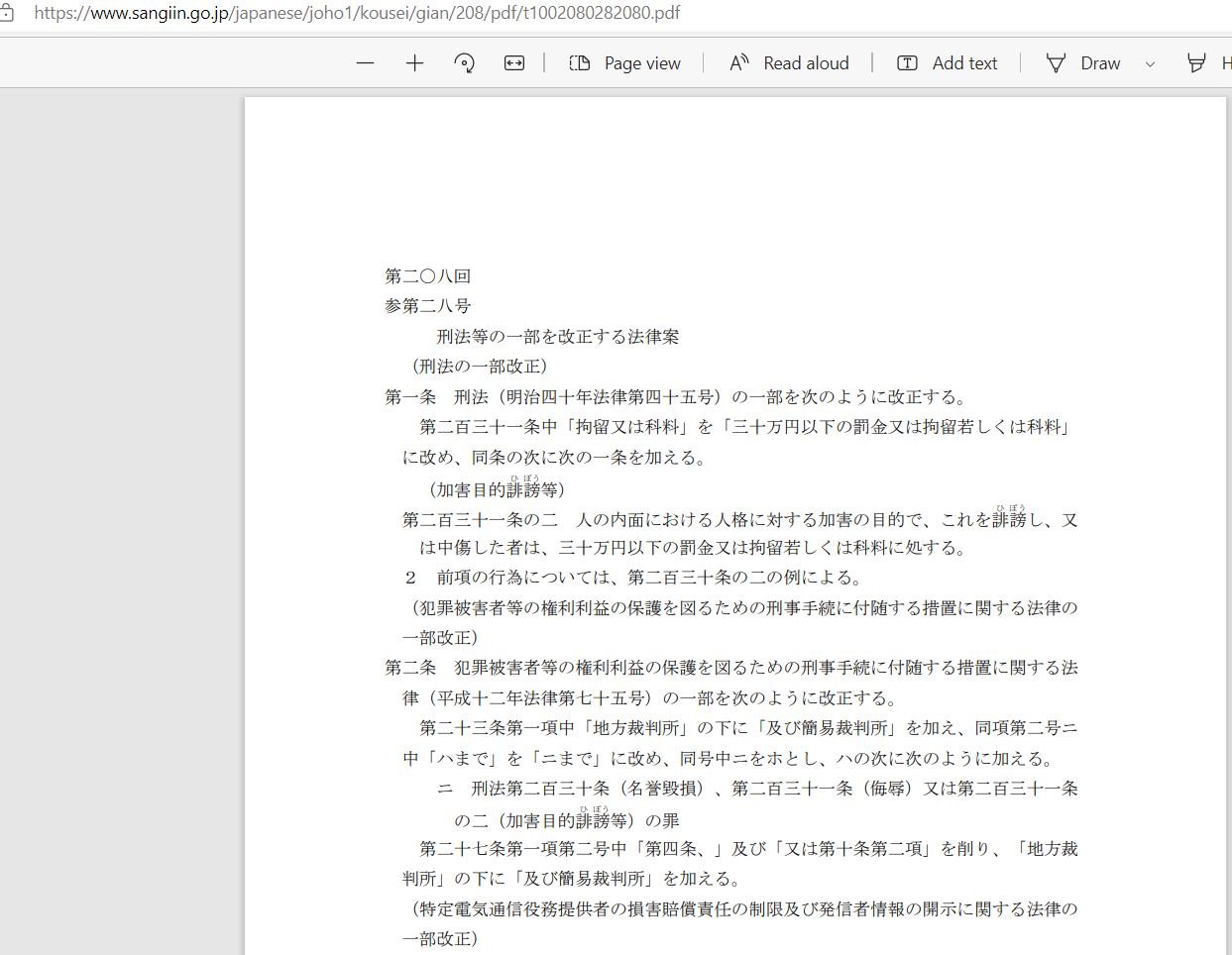Japan’s government passed a law making cyber bullying punishable by imprisonment amid rising public concern over cyberbullying. Under the amendment to the penal code offenders convicted of cyberbullying can be jailed for up to one year, or fined about $2,200.

It’s a substantial increase from the current sentences of detention for fewer than 30 days and a fine of up to $75. The bill proved controversial in the country, with opponents arguing it could obstruct free speech and censure those in power. However, fans said tougher legislation was needed to crack down on cyberbullying and online harassment.
Insults, under Japan’s penal code, are defined as publicly demeaning someone’s reputation without the reference of specifics, whether that’s a fact about them or a specific action. This is different to defamation, which would involve specifications. Defamation and insults are punishable under the law. Lawyers are worried that the revised law gave no classification of what constitutes an insult. For example, at the moment, even if anybody calls Japan’s president an idiot, then maybe under the new law that could be classed as an insult.
Advocates of the law cite the death of 22-year-old wrestler and reality TV personality Hana Kimura as a reason it was needed. On the day she died, Kimura shared images of self-harm and hateful comments she’d got on social media. Her death was later ruled a suicide. Three men were investigated for their role in her death. One was fined a small sum, and another paid around $12,000 of damages after a civil suit brought by her family.
After the amendment was approved, Japan’s Justice Ministry was questioned if the change was suitable given international efforts to exclude defamation from criminal law and ensure it cannot result in imprisonment, and if Japan’s efforts to protect online rights might therefore harm its reputation for human rights. The Ministry rejected the possibility of that outcome.
Other countries have taken a diverse approach to contain insulting online speech, with measures that force platforms to take down posts that draw grievances, or that require the revealing of anonymous trolls.
He is a cyber security and malware researcher. He studied Computer Science and started working as a cyber security analyst in 2006. He is actively working as an cyber security investigator. He also worked for different security companies. His everyday job includes researching about new cyber security incidents. Also he has deep level of knowledge in enterprise security implementation.
